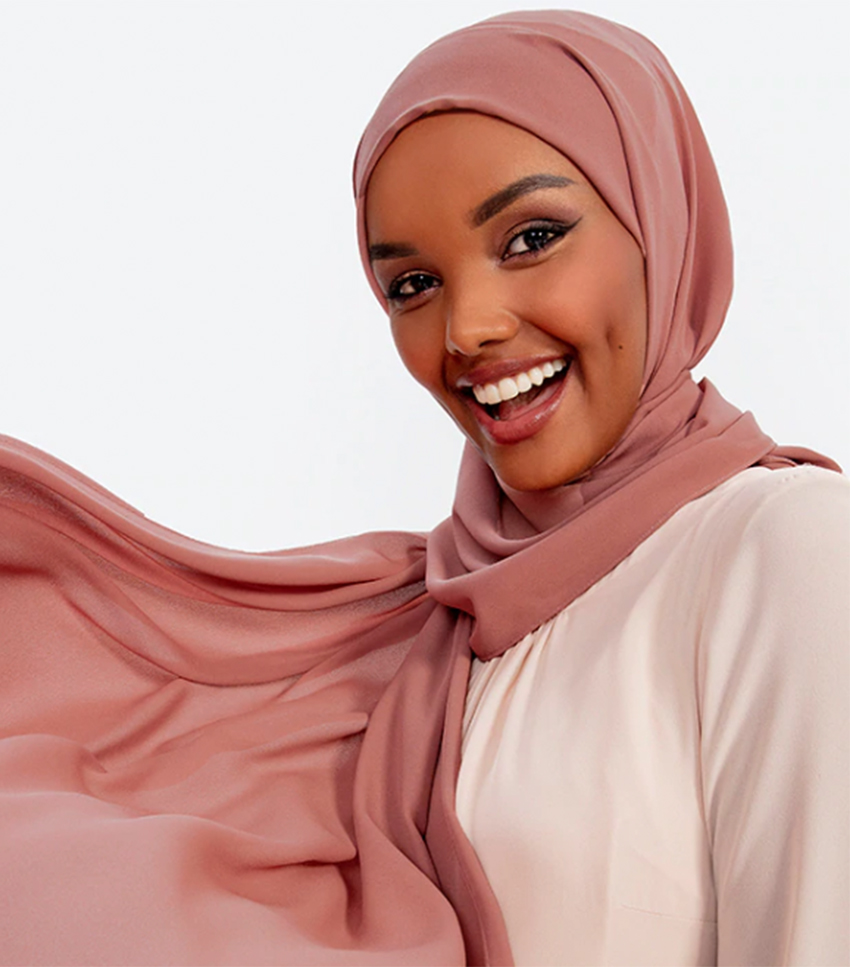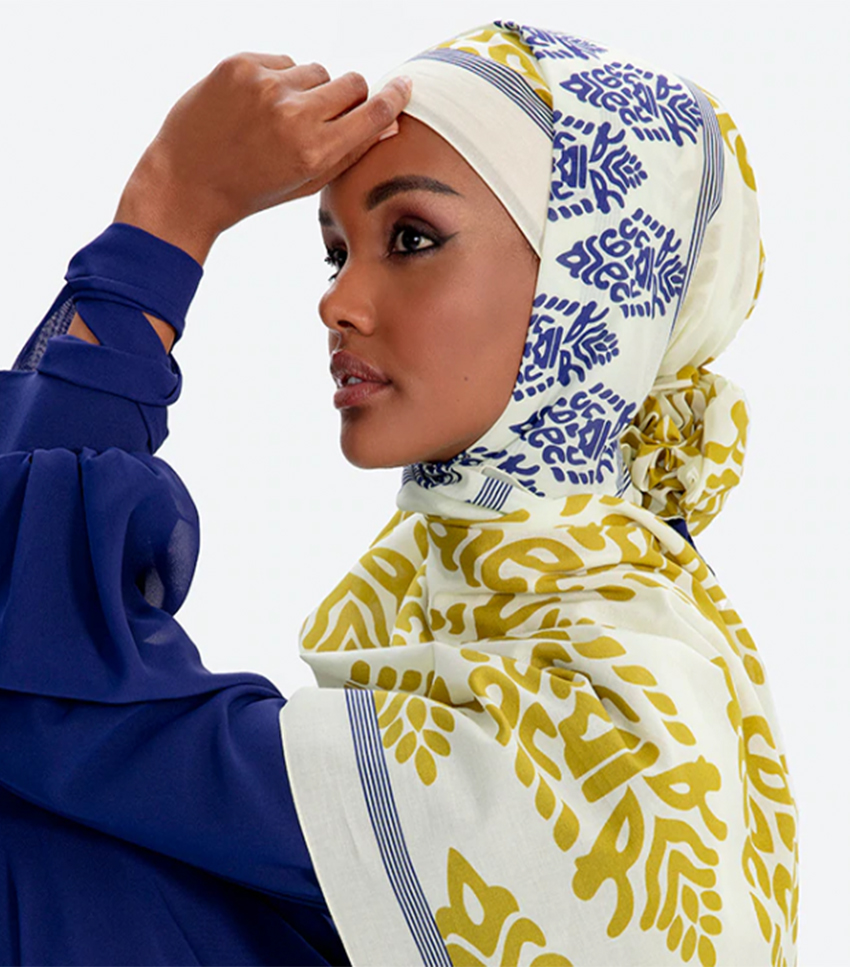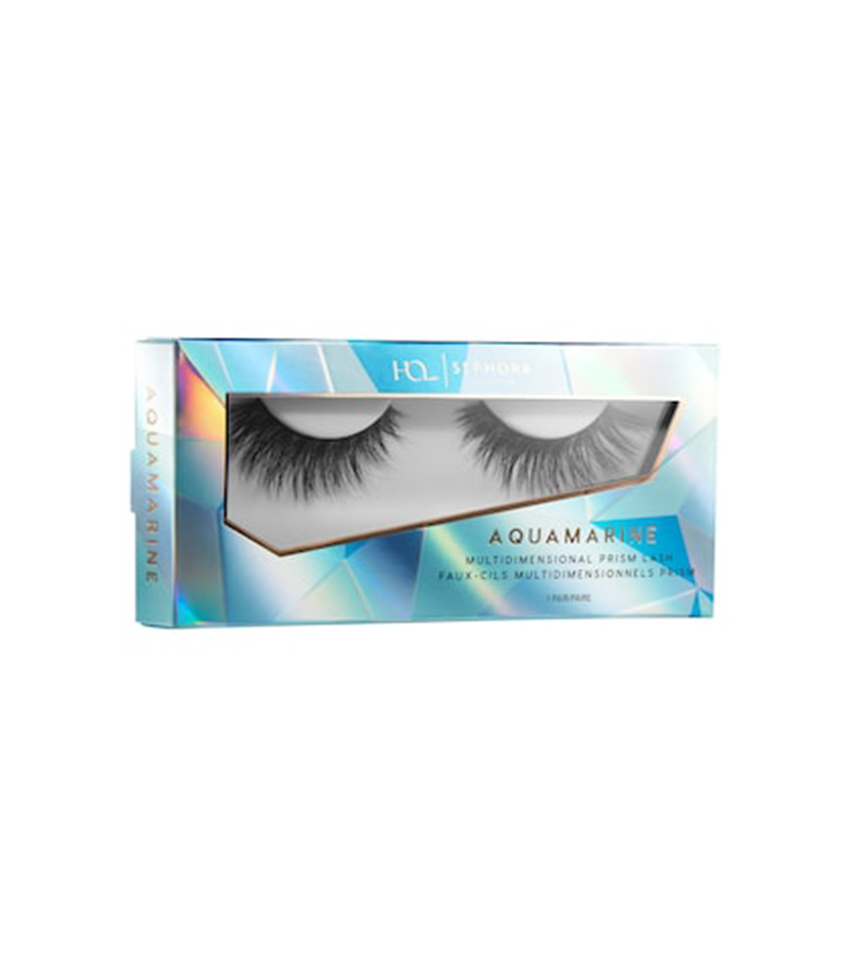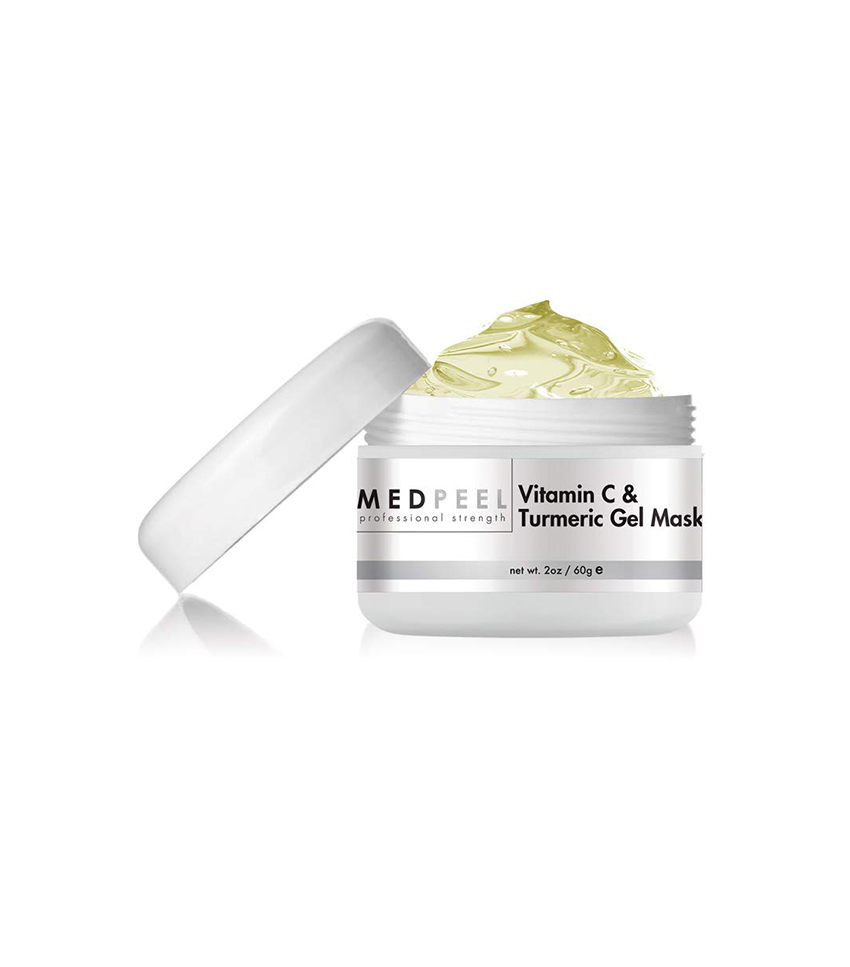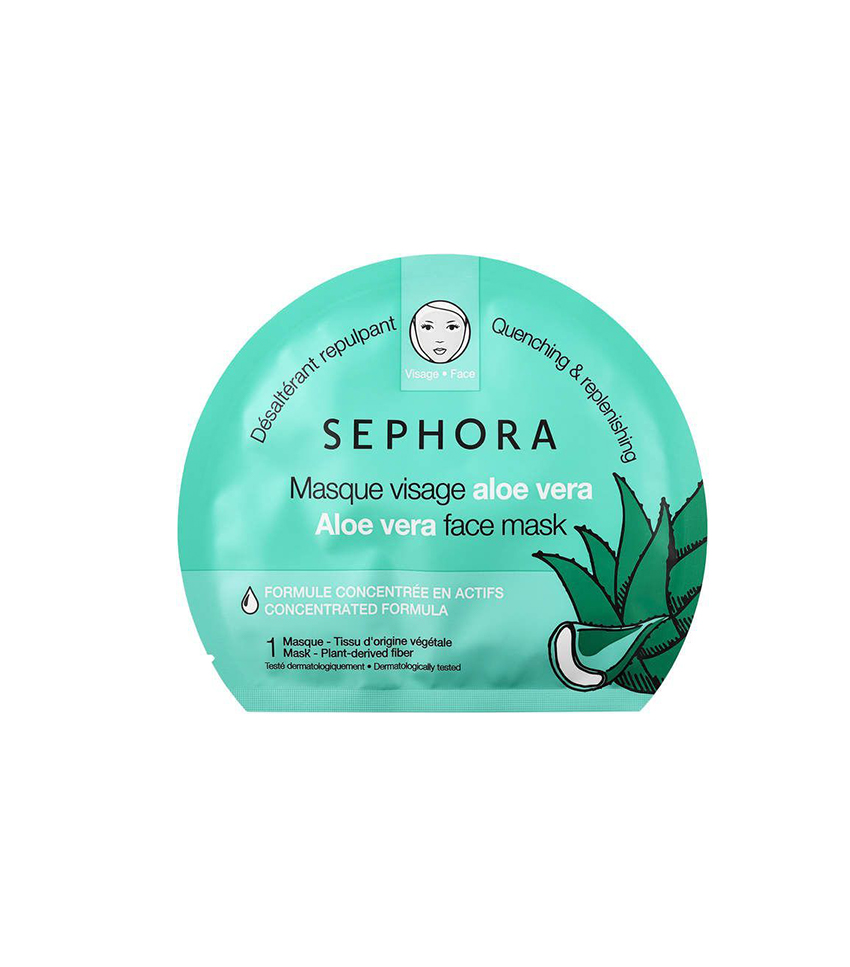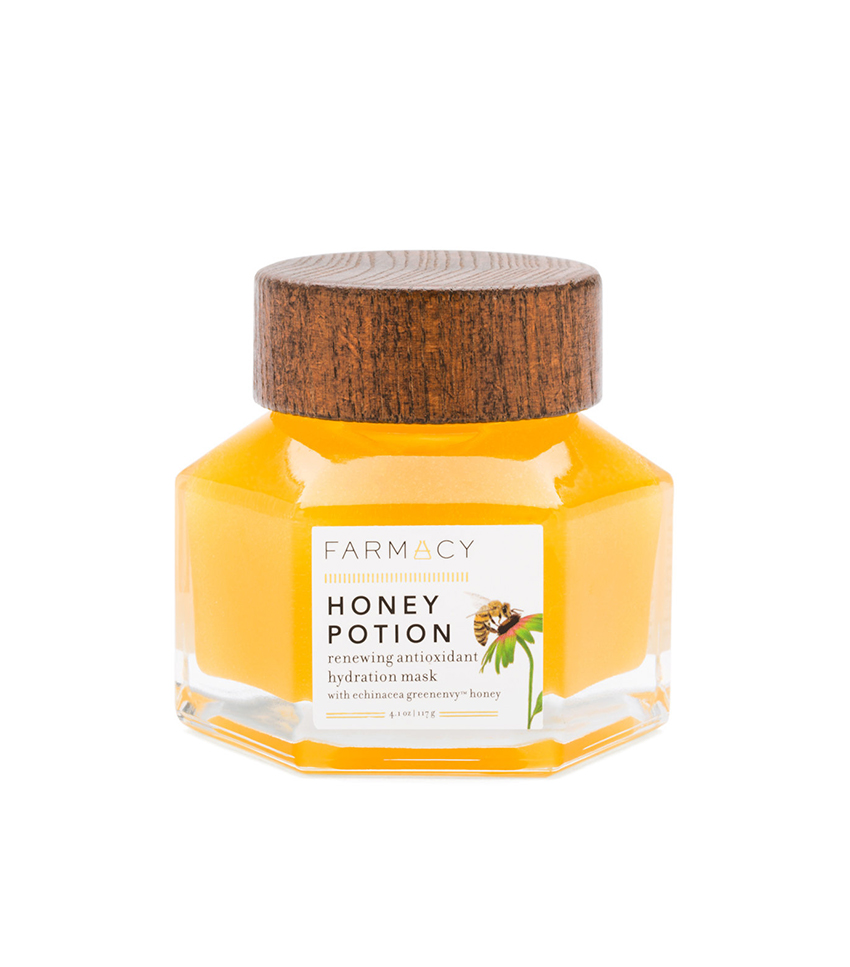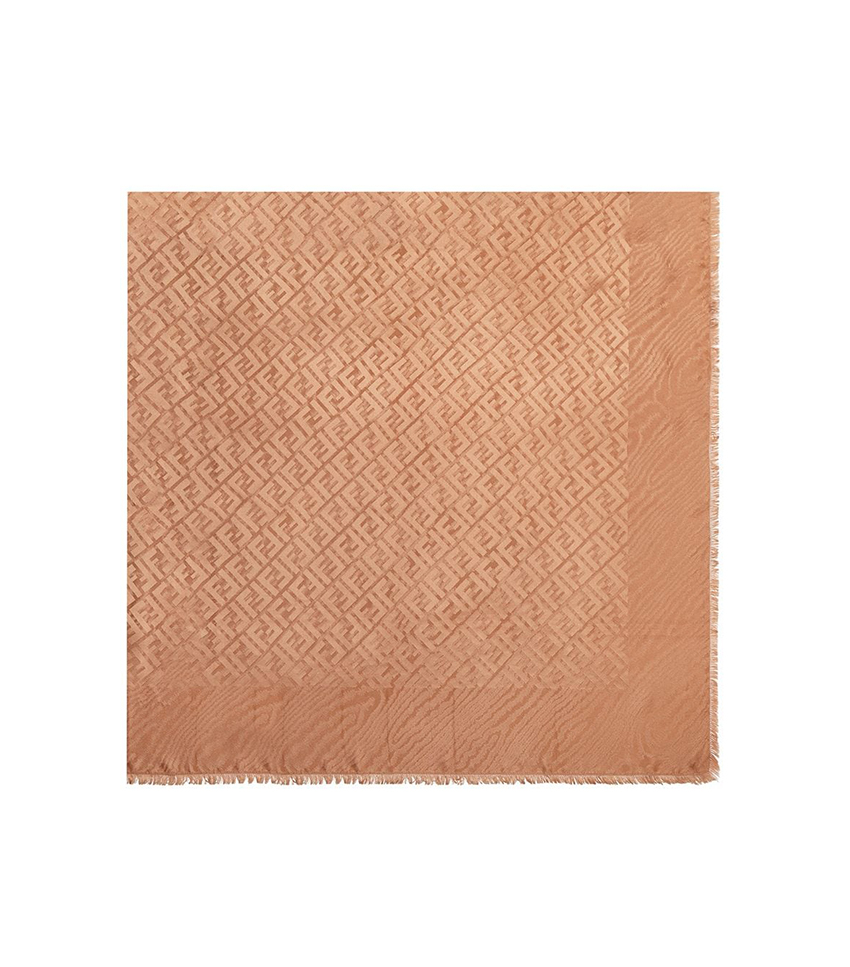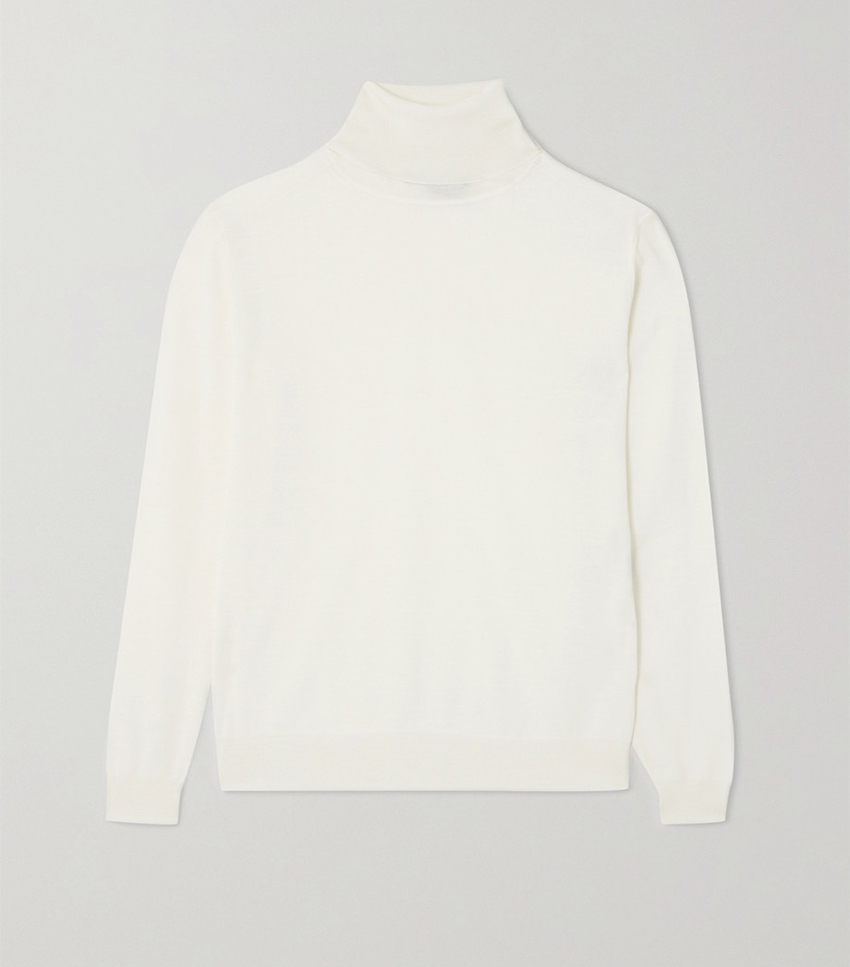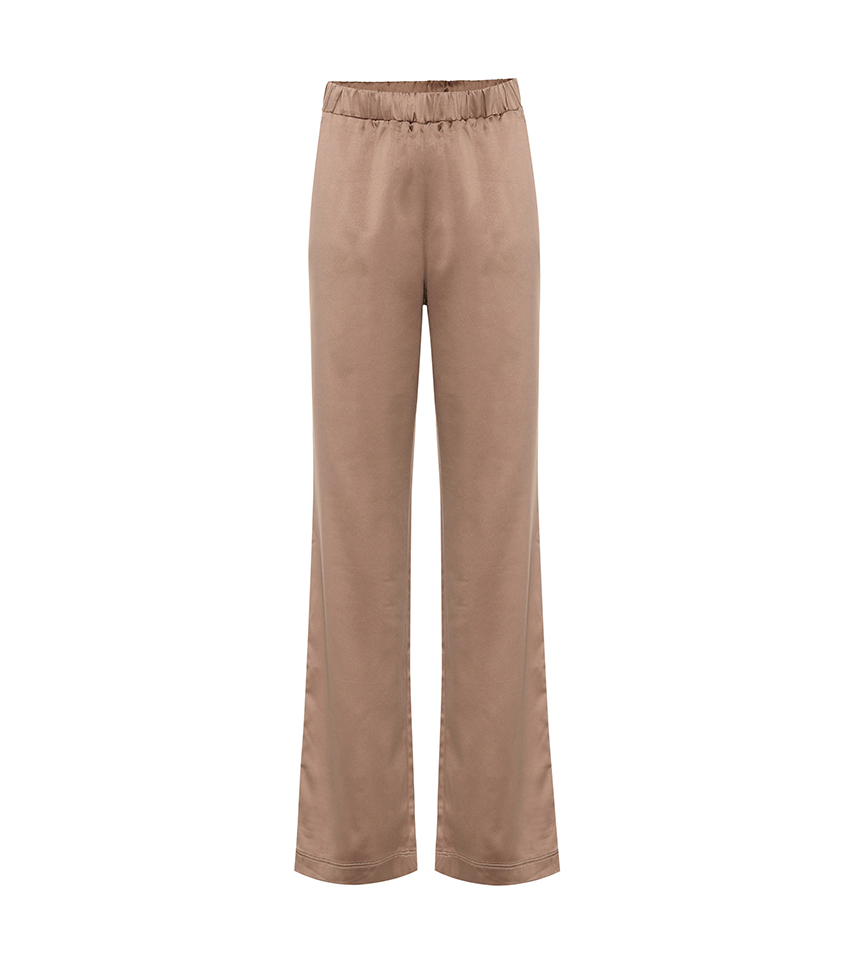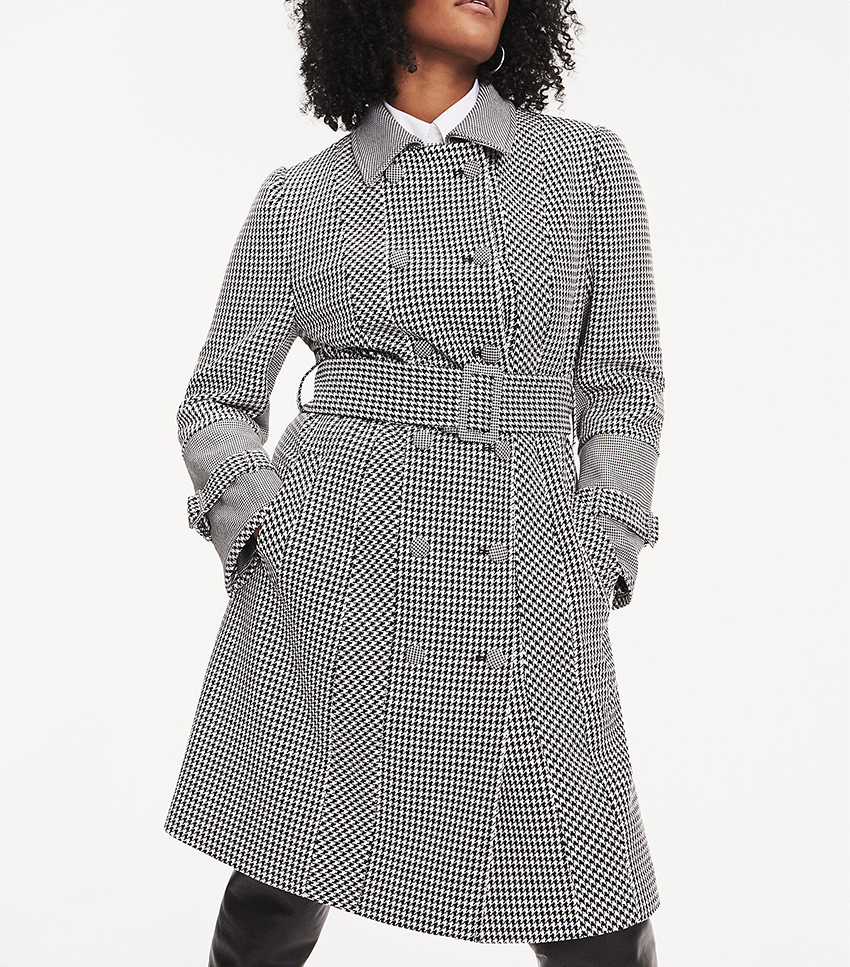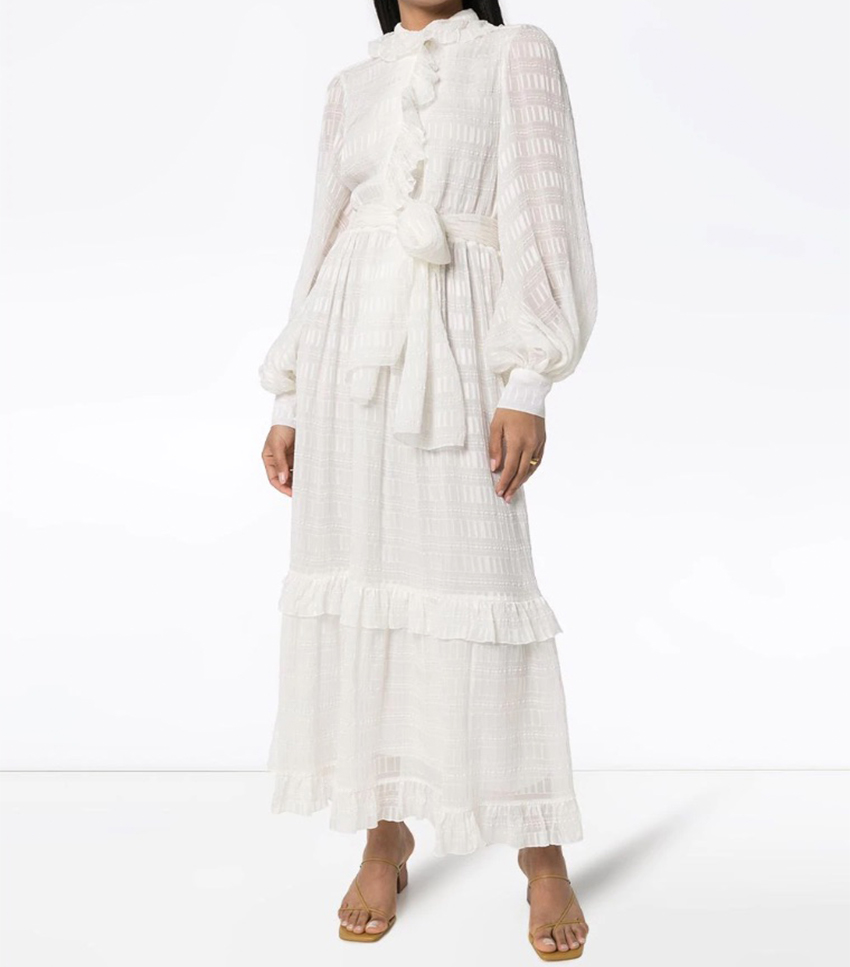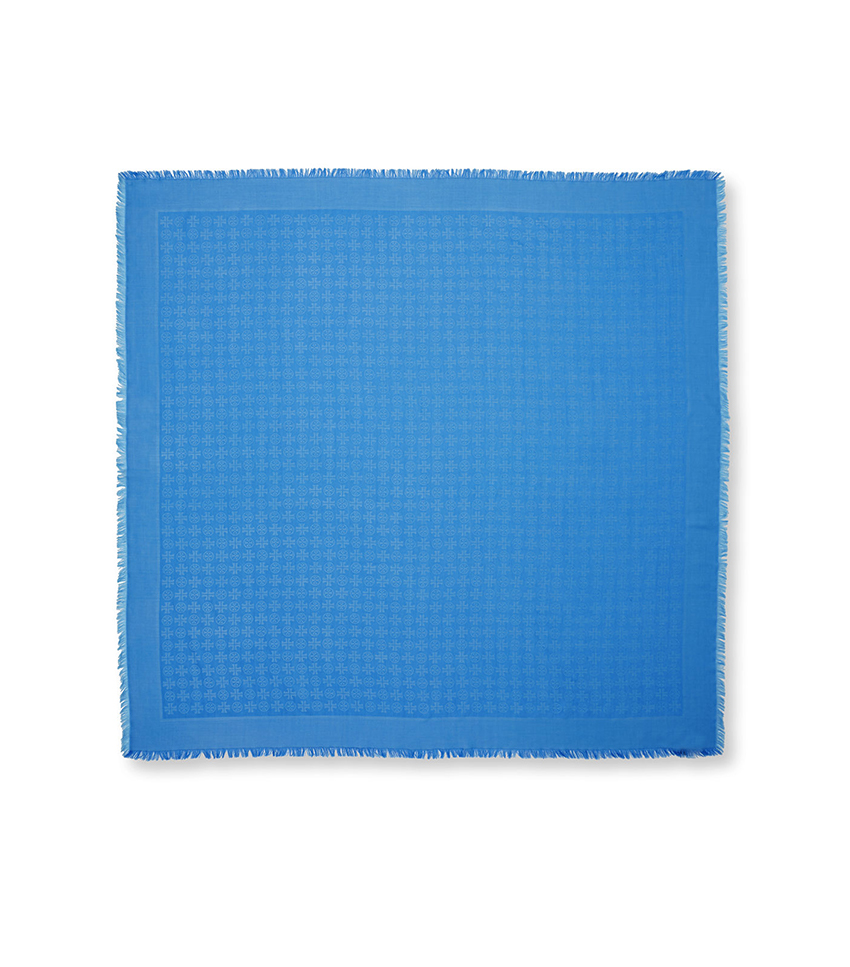Talking Style, Representation, and Refugees on Screen With Halima Aden
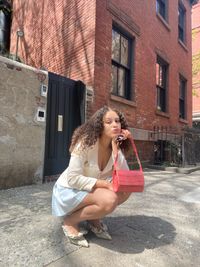
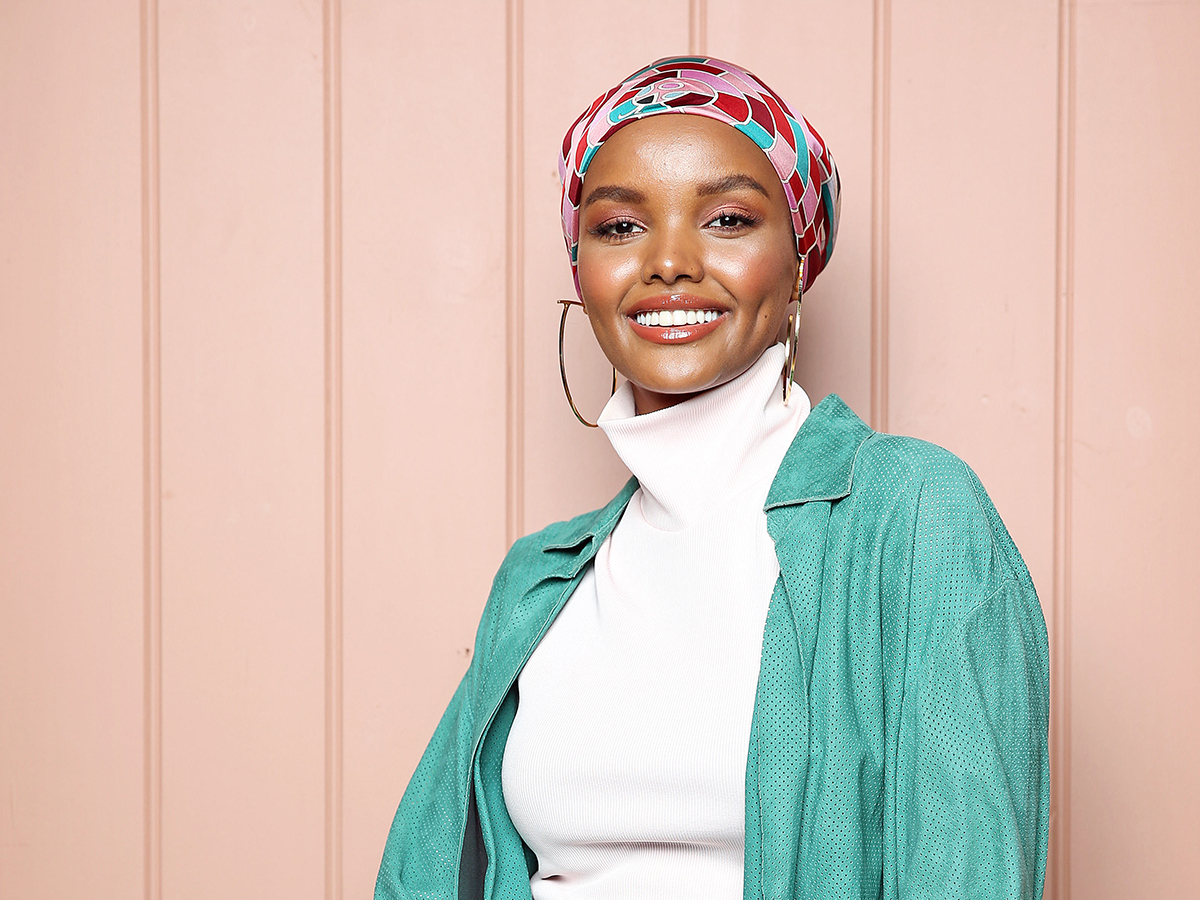
In a concert hall located on the Upper West Side of New York City, women from around the world huddled into a dark room where the air was filled with excitement and anticipation. It was the second year of Tory Burch Foundation’s Embrace Ambition Summit, and I was lucky enough to attend. While I’m no stranger to a summit—in this age, it seems as though a new summit or conference or festival is created every year—this one truly lived up to the hype.
In fact, I walked away from the day thoroughly inspired because the panelists not only spoke eloquently but also walk the talk in their lives. And while the day was filled with incredible speakers, if I’m being honest, one speaker's presence on stage permeated beyond the mic, causing literal goosebumps, and that was model and activist Halima Aden. You may know her as the first model to wear a burkini on the cover of Sports Illustrated, but after hearing her speak, I knew there was so much more to this woman than that, and I had to hear more about her experience. Luckily for us, she agreed to talk to us about everything from her modeling career to modest fashion. Fair warning: Inspiration lies ahead…
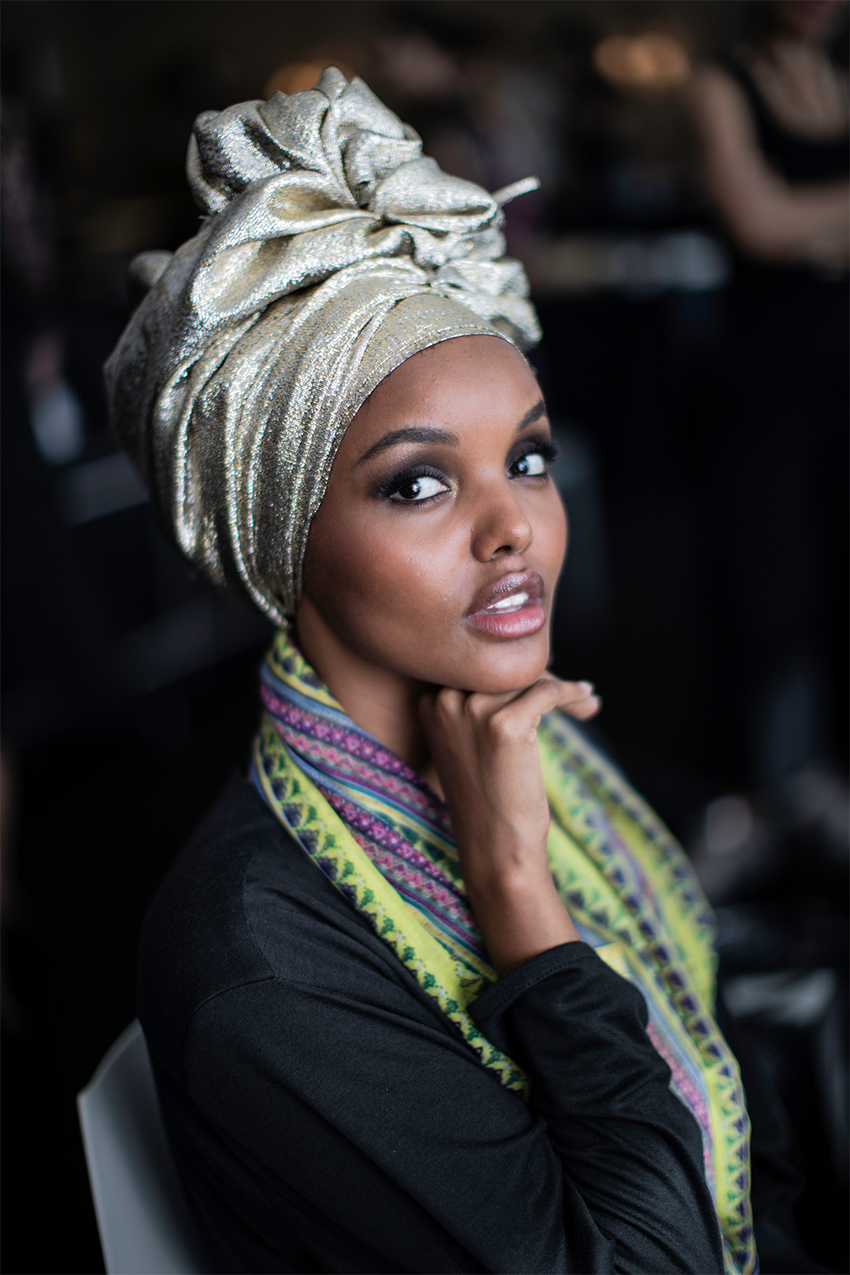
For those who aren’t familiar with how you became a model, can you share a little bit of your story?
I competed in the 2017 Miss Minnesota USA pageant wearing a hijab and burkini, fully covered swimsuit, during the competition. While I didn’t win, I did generate international media attention, as no woman had before competed in a hijab and burkini. Immediately after, the pageant organizers were getting calls from Rihanna’s team to shoot with Fenty Beauty, Carine Roitfeld to shoot for CR Fashion Book (where I landed the cover of Issue 13), and IMG Models. It was a whirlwind and all happened so quickly. It was uncharted territory, as there had never before been a hijab-wearing model, so that came with a lot of unknowns and the need for conversations on how to best navigate with my agency, clients, and brands. I’m proud to say that just three years later, it is not uncommon to see a hijab-wearing woman on the runway or on a magazine cover.
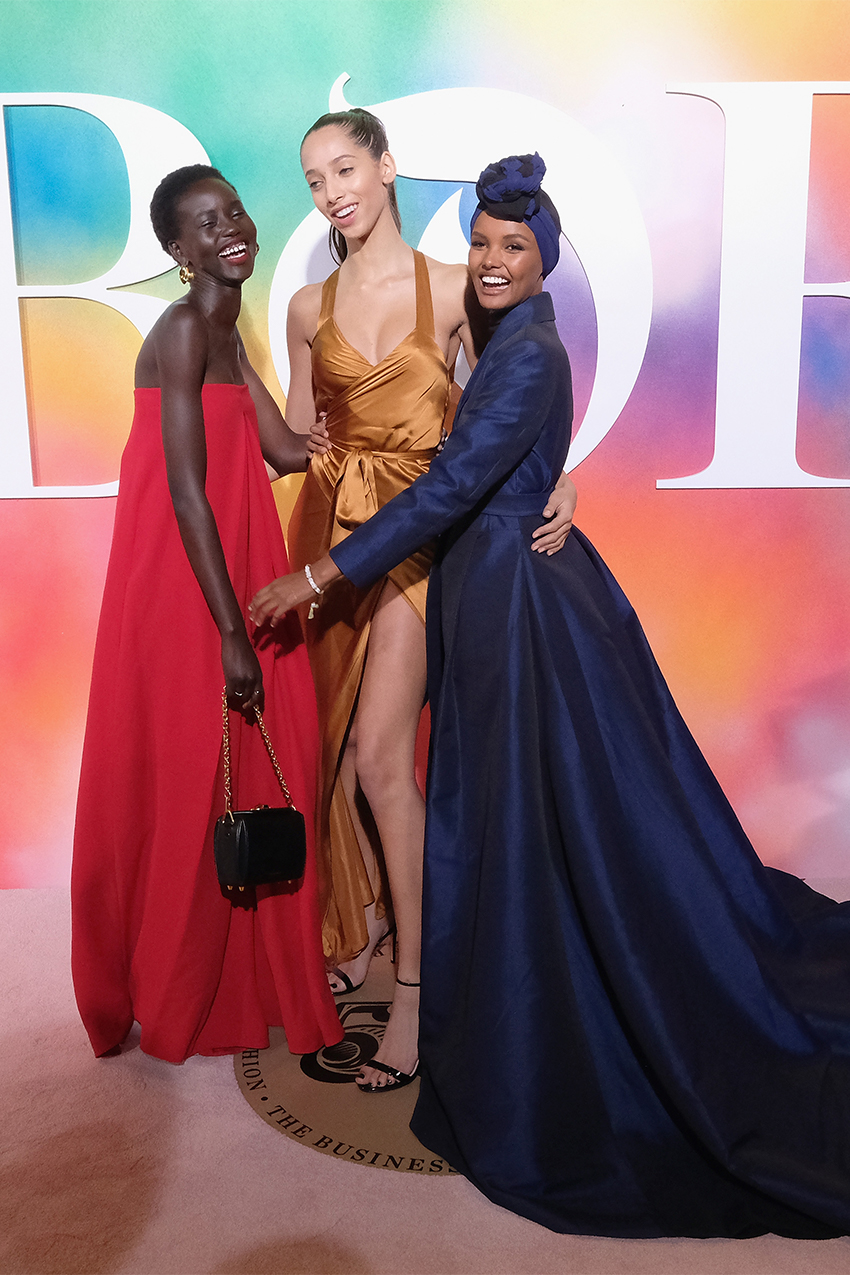
What moment thus far has been the most surreal for you in terms of your career?
For me, there have been a few moments. I appeared on the cover of British Vogue, which had never before in its 102-year history showcased a woman wearing a hijab on the cover. What made that shoot especially wild is that another newcomer to the industry at the time, Adut Akech, and I realized we were born in the same exact refugee camp. My family was given the opportunity to resettle in America, while Adut’s resettled in Australia. Two refugees from the same Kenyan camp, reuniting on the cover of British Vogue… You can’t make that up. Another surreal moment, really a full-circle moment, was shooting for Sports Illustrated Swimsuit Issue. The burkini launched my career at the Miss Minnesota USA pageant, so a couple years later, to have the chance to be the first burkini-wearing woman in one of the most widely sold publications in the world was incredible. I’m a firm believer that a woman should be able to wear an itty-bitty bikini and be celebrated, and a woman wearing a modest burkini can stand right next to her and be celebrated. There’s room for all of us, and everyone deserves to feel beautiful.
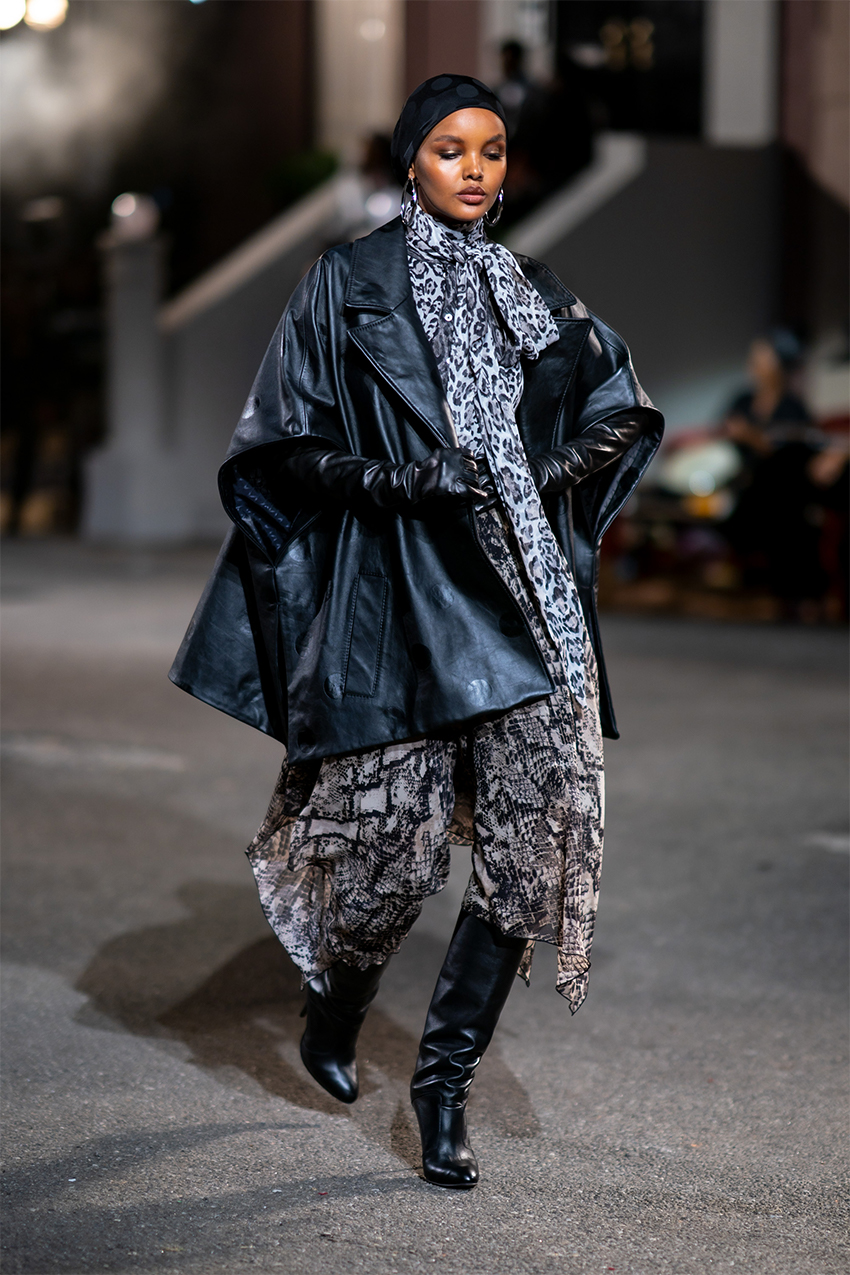
In your opinion, why is it so important for young Muslim women everywhere to see someone like you on the cover of magazines or on the runway?
Growing up, I never saw anyone who looked like me represented positively in mainstream media. It’s important that young Muslim women everywhere see someone like me in these spaces to know that they too can be there. For me, I never knew a hijab-wearing Muslim woman could be a model because I never saw one before. I want young girls to know that if you don’t see yourself represented somewhere, be the one. If you aren’t invited to the table, pull up your own seat. Don’t be afraid to be the first, and don’t be afraid to do things on your own terms, your own way. The world will meet you where you stand.
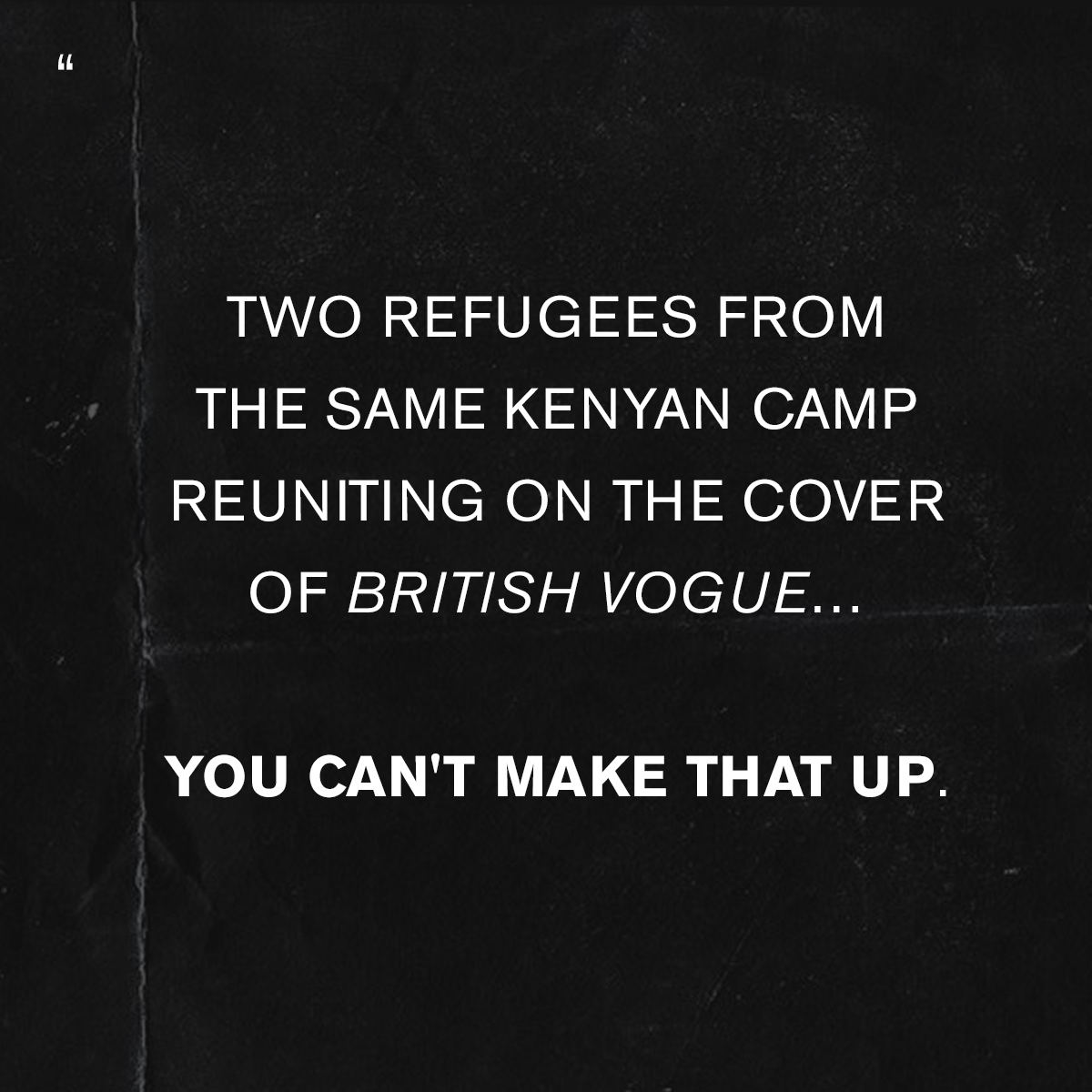
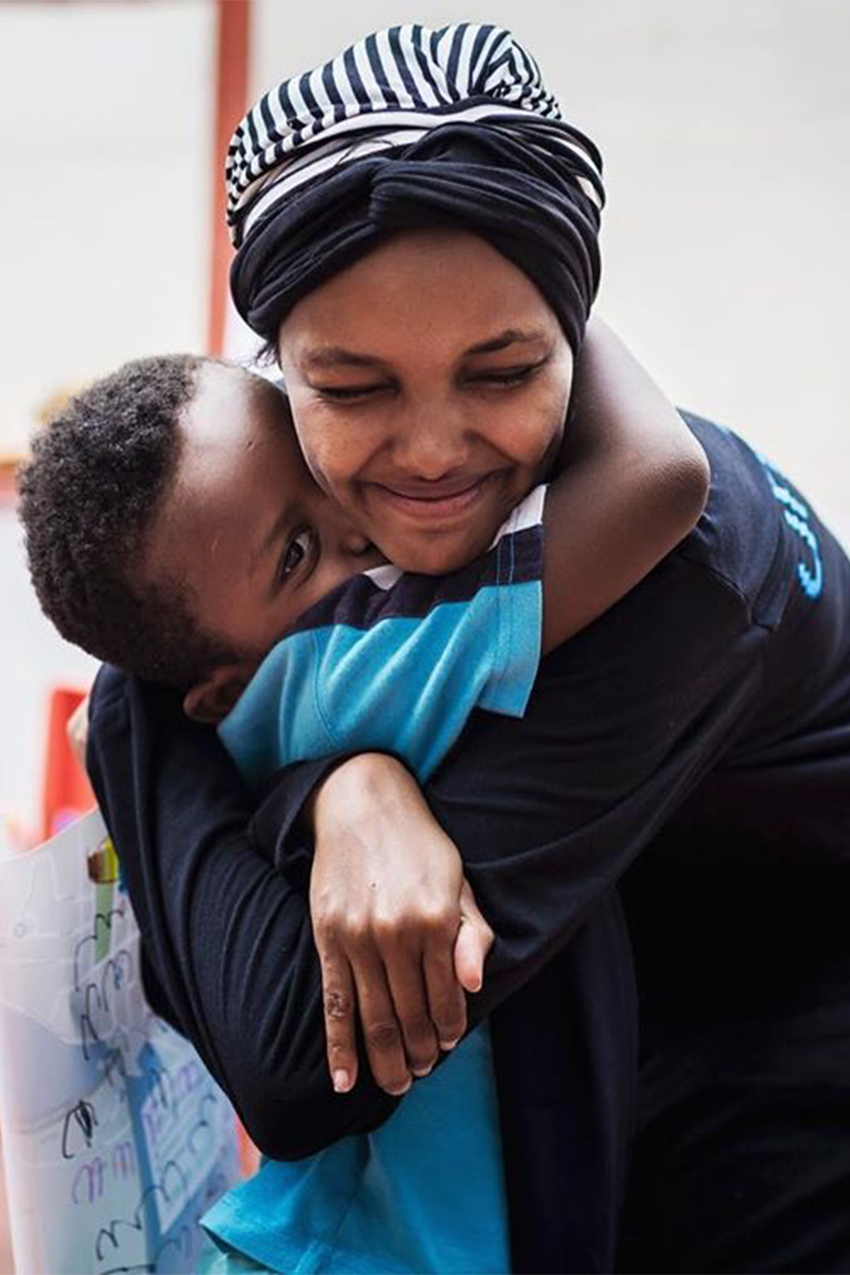
You not only model, but you’re also an ambassador for UNICEF. Can you tell us a little about what you do for the organization?
Being named a UNICEF ambassador has been a career highlight. As a former refugee child who was once on the receiving end of their services, I know firsthand the impact they make. UNICEF is responsible for providing children around the world with basic necessities like food, water, vaccines, access to an education, safe housing… I could go on and on. My favorite quote is, "A child in need knows no politics.” For me, it’s sharing my story and encouraging people that if we invest in our youth, all of them, they can go on to do big things and be successful.
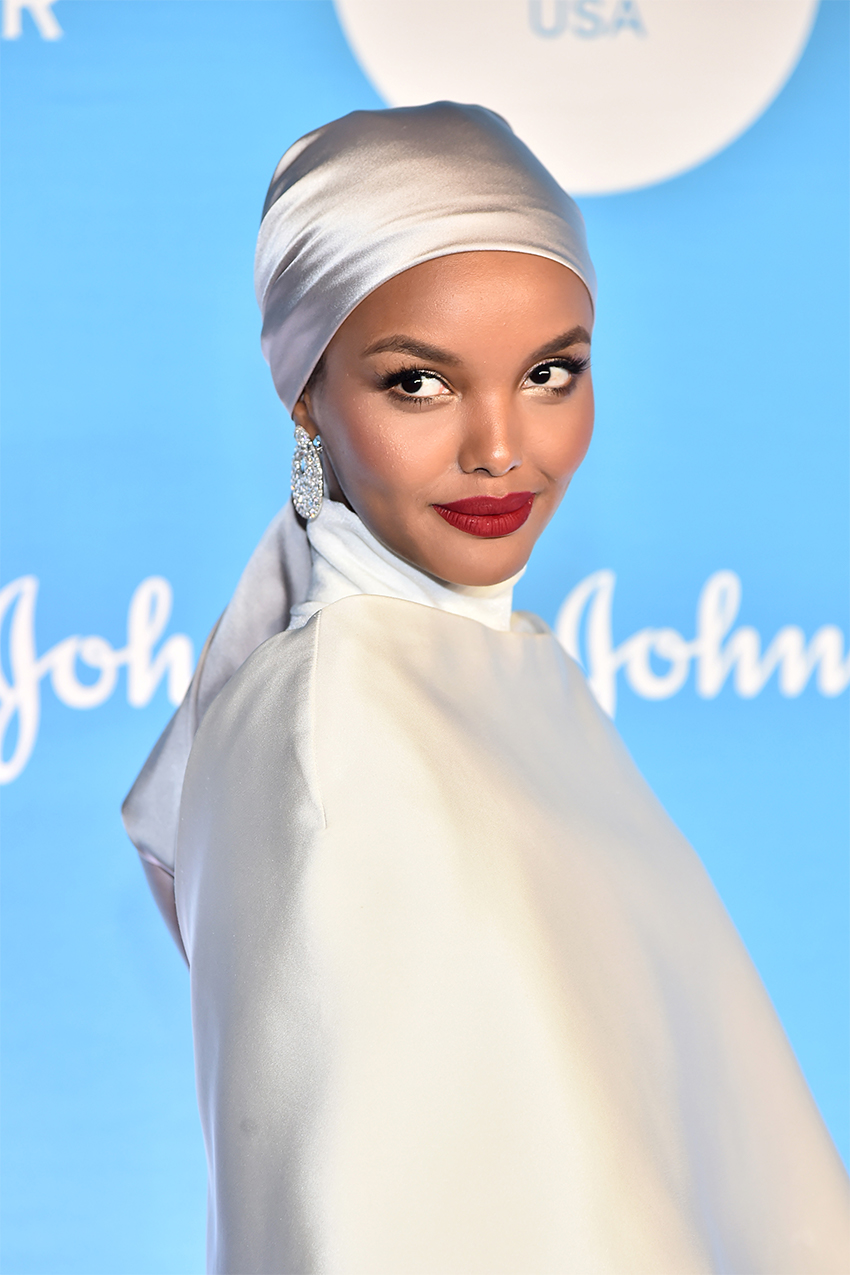
I’ve had the opportunity to take field visits on behalf of UNICEF to see the work they are doing on the ground in places like Mexico, Kenya, and Italy. I’ve had the opportunity to speak to my state’s lawmakers on Capitol Hill on behalf of UNICEF to urge them to approve the appropriations necessary for UNICEF to continue to deliver a difference for children everywhere. Now, more than ever, with more children on the move, we need to do our part. Every two seconds, someone is displaced from their home. UNICEF has been putting children at the top of their agenda for decades, and I do my best to get anyone who will listen to me to support their vital work.
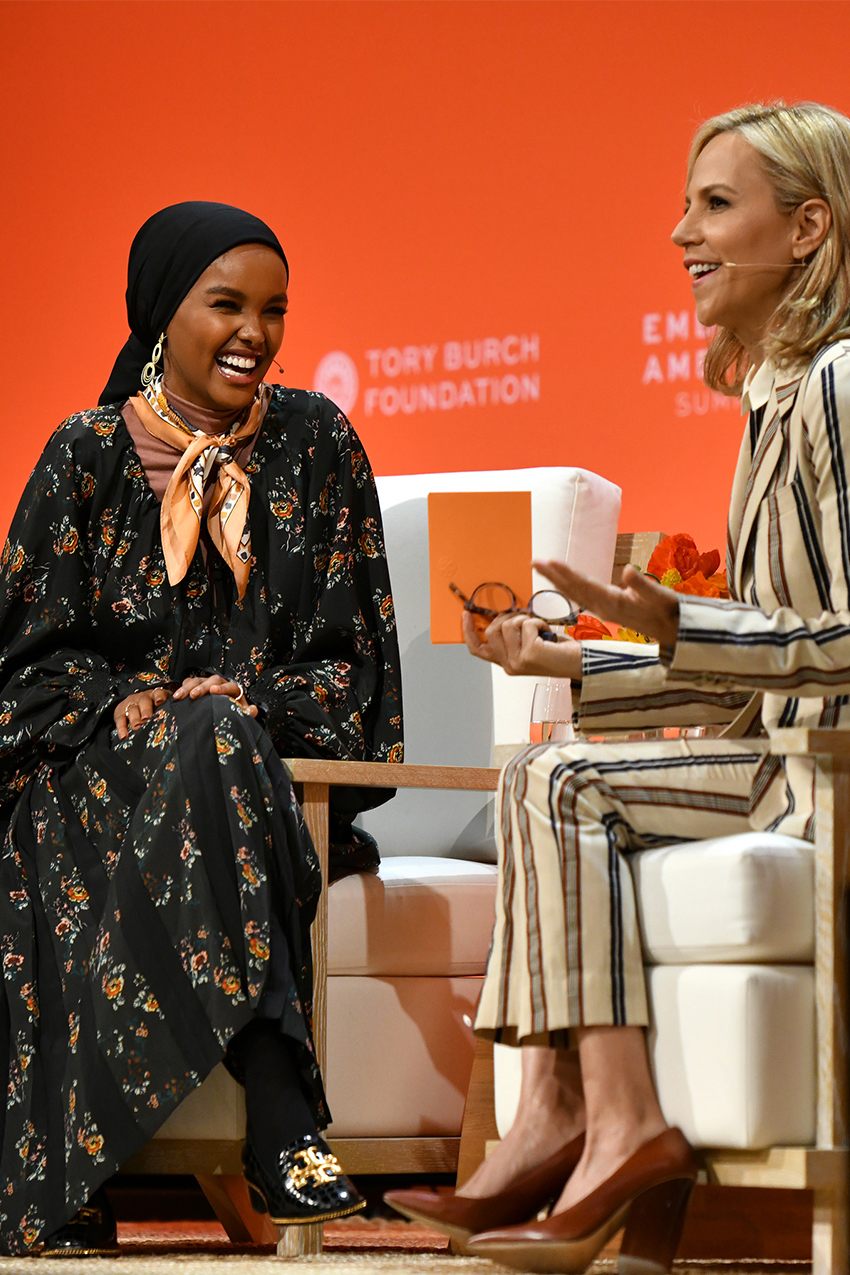
As you spoke to on the Summit stage, unfortunately we live in a time when what women choose to wear is still being criticized. France has even banned women from wearing burkinis to the beach. What would you say to these critics?
One of the hardest things for me to read about is women and young girls from Muslim communities drowning. And I admit that I never learned how to swim, as there was never a swimsuit growing up that allowed me to take lessons or join the school swim team. What I would say to the critics is, "Why in the world do you care what a woman wears to the beach or pool? It is made from swimsuit material and is just another form of swimwear.”
I can’t tell you the number of women who saw my spread in Sports Illustrated, who are not Muslim or even modest dressers necessarily, but said how excited they were as a skin cancer survivor to see a fully covered swimsuit option. Or receiving a message from a teenage girl, who again isn’t Muslim, who saw Sports Illustrated and reached out, happy to see a swimsuit that could hide her insecurities from an accident telling me she would now go swimming with her friends. Why anyone is banning anyone from a non-offensive wardrobe item, that can also be the difference between life or death in Muslims learning the basic life skill like swimming, is simply beyond me.
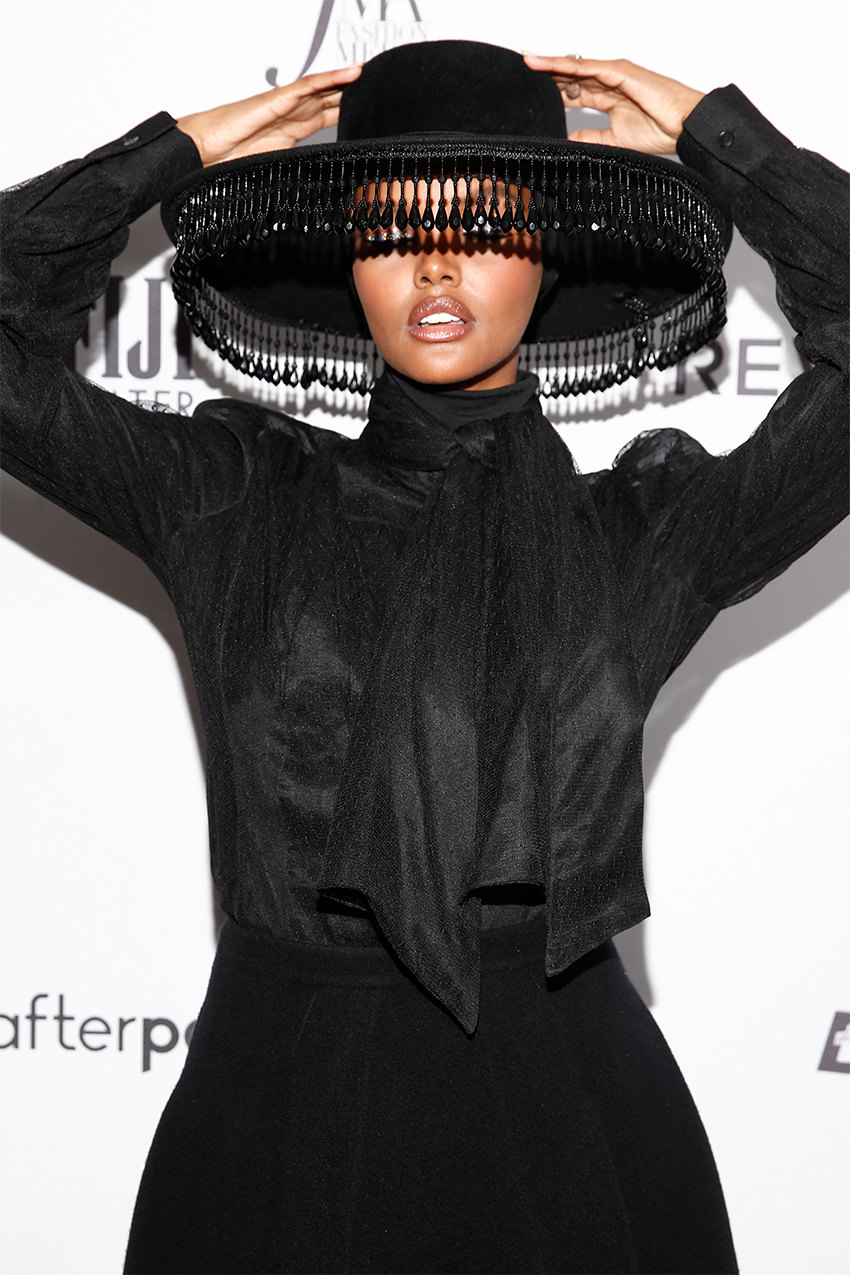
As a Muslim woman, what advice would you give to younger women who are witnessing the persecution and displacement of their community across the world?
I think we all, collectively as a human race, need to take it upon ourselves to get to know our neighbors. We need to start the conversations and learn about one another. At the end of the day, we all want the same things: to be happy, safe, healthy, successful. I think we will all find that we are more alike than we are different. I would encourage younger women in my community to lead the conversations, seek support from your fellow women, and continue to lift one another up.
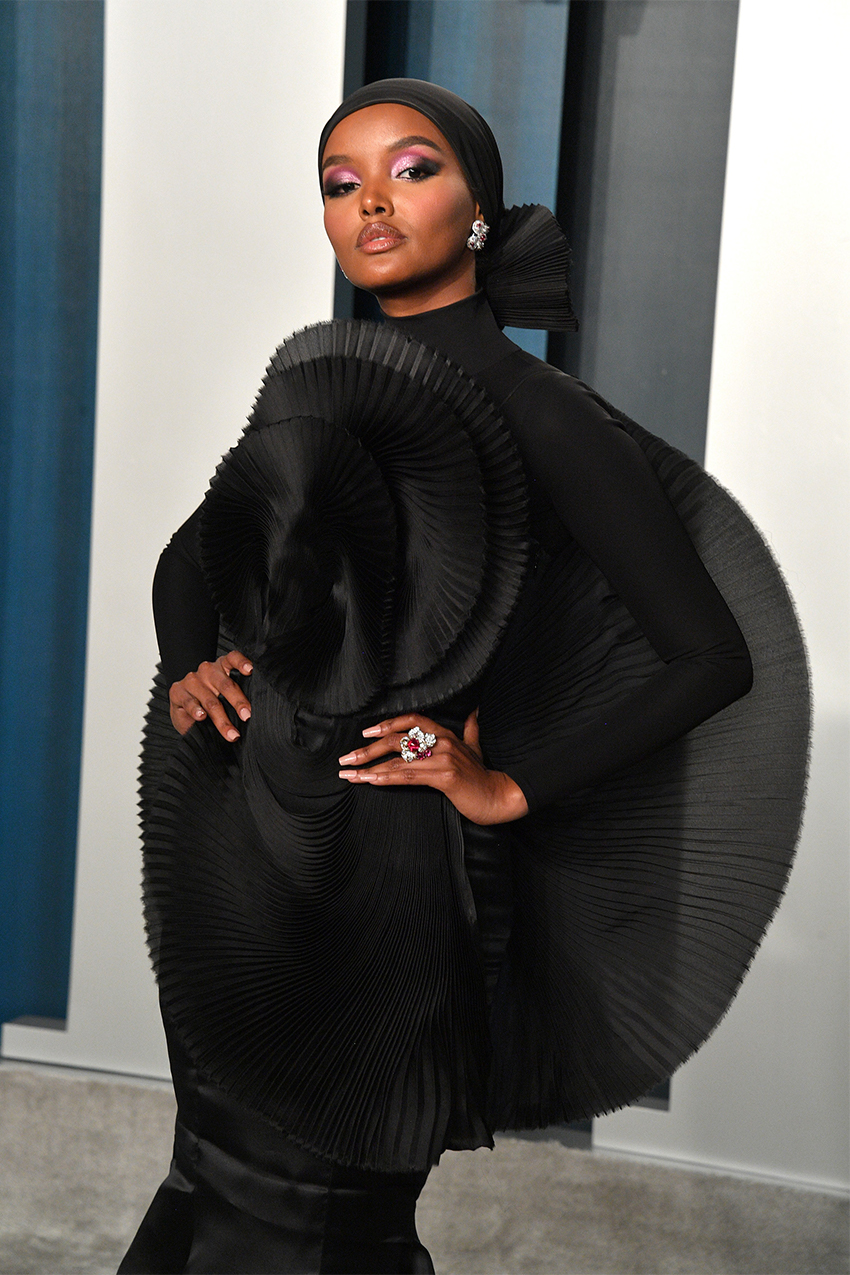
More recently, you’ve helped produce a film. Tell us a little about it. What drew you to produce I Am You? And why is it important to see films that follow the experience of refugees?
The film was directed by a refugee and woman, Sonia Nassery Cole. We share a lot in common. When she told me about the project, I was hooked. Right now, the story is so timely, relevant, and important. It tells the story that refugees take in hopes to find safety. It leaves the viewer confused at times, which is exactly how a refugee feels. It makes the viewer want to turn away, as the stories are so true and painful. It is real life for so many people and deserves to be shared with a large audience. The big thing for me was to show people what it’s like for many refugees. Refugees don’t come to a new country to get a better job, to live with family members, or to seek new opportunities. No. Refugees have no other choice. It is to stay where I am and I will die, or risk everything in hopes of finding somewhere safe that will accept me. Please, please, please… Keep an eye out for the film to be streaming, and watch it!
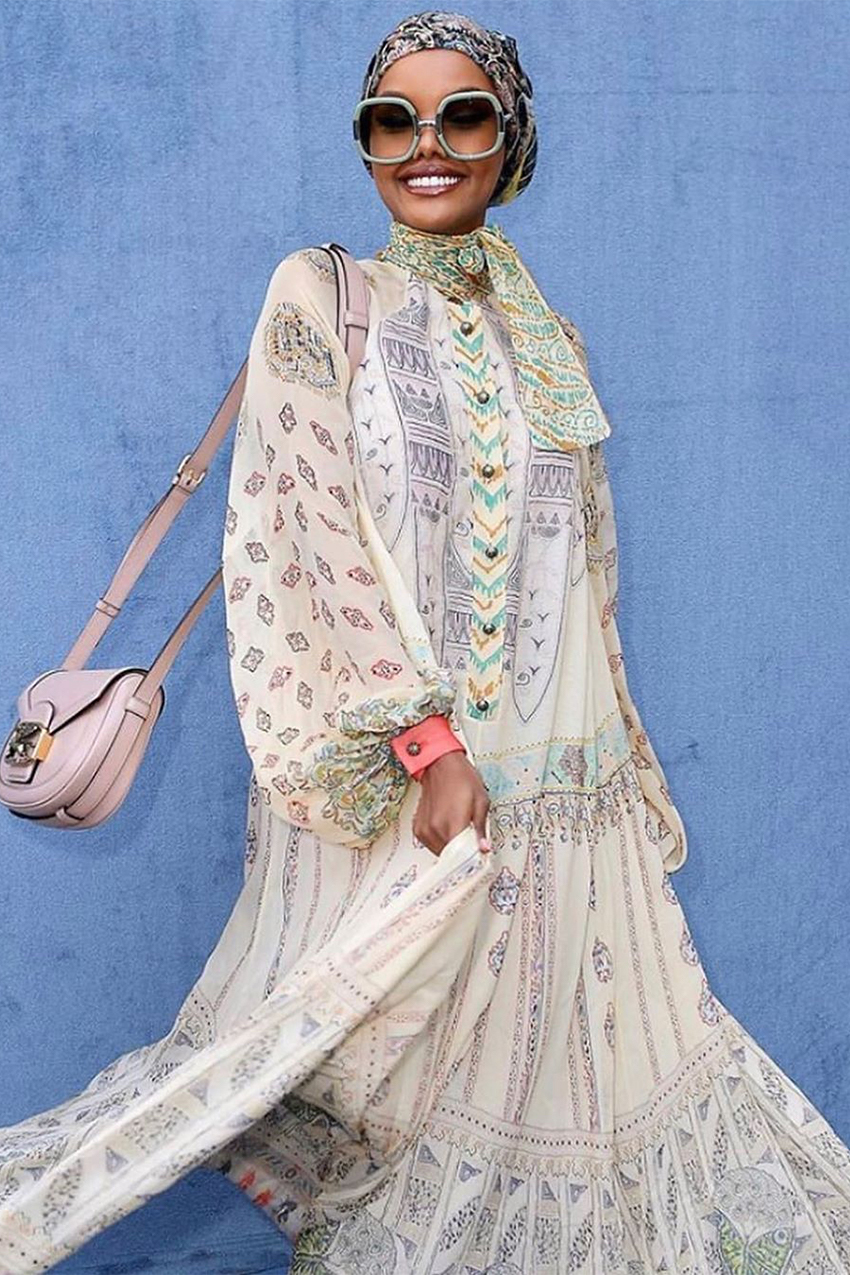
How has your faith and your experience as a refugee inspired your approach to modest dressing? And what would you say the biggest misconception about modest dressing is?
Modest dressing isn’t a new thing. It has stood the test of time. I started dressing a certain way because the woman I most admired was dressing that way: my mom. I think we all try to emulate the people we most admire. Now, it’s how I’m most comfortable and how I feel my personal best. I think it’s a misconception that modest dressing is for a certain culture or religion. That’s simply not the case. Modest dressing has been around forever, and all groups of women have participated. It’s timeless. It also can mean something different to each individual woman; there is no one-size-fits-all. And it’s okay for a woman’s definition of modesty to change over time.
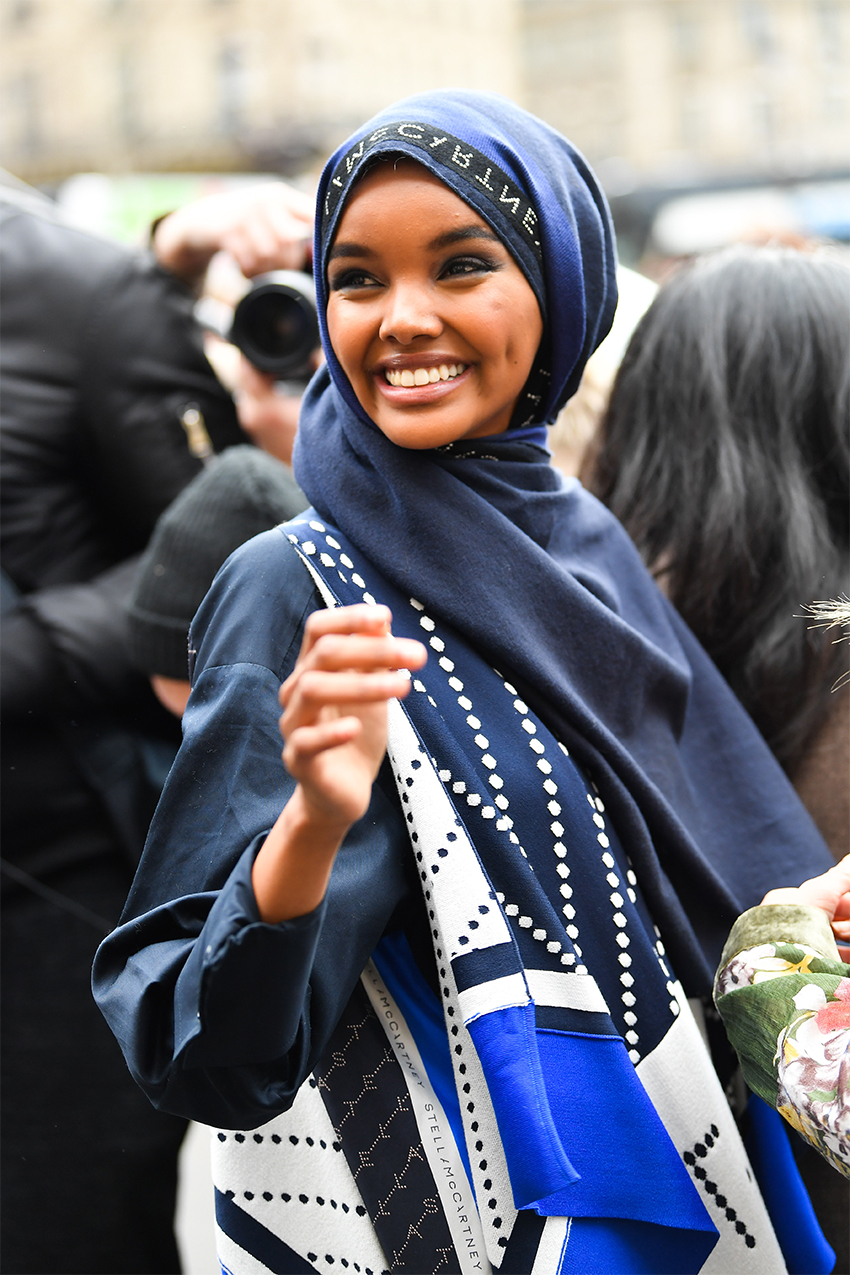
Are there any designers or brands you love to shop from for fun modest pieces?
There are so many. I had the chance to launch a Middle East capsule collection for Max Mara, and those pieces are so classy. I love shopping Max Mara’s runway looks. I also have felt incredible in pieces by Stella McCartney, Tommy Hilfiger, Fendi, and Etro. And, a shameless plug, I encourage you all to check out my scarf and turban collaboration collection with Modanisa, the largest modest e-tailer. It was important for me to create no-pin, no-tie turbans that you plop on your head and go for today’s busy, modern women.
Shop some of Halima's turban collaboration:
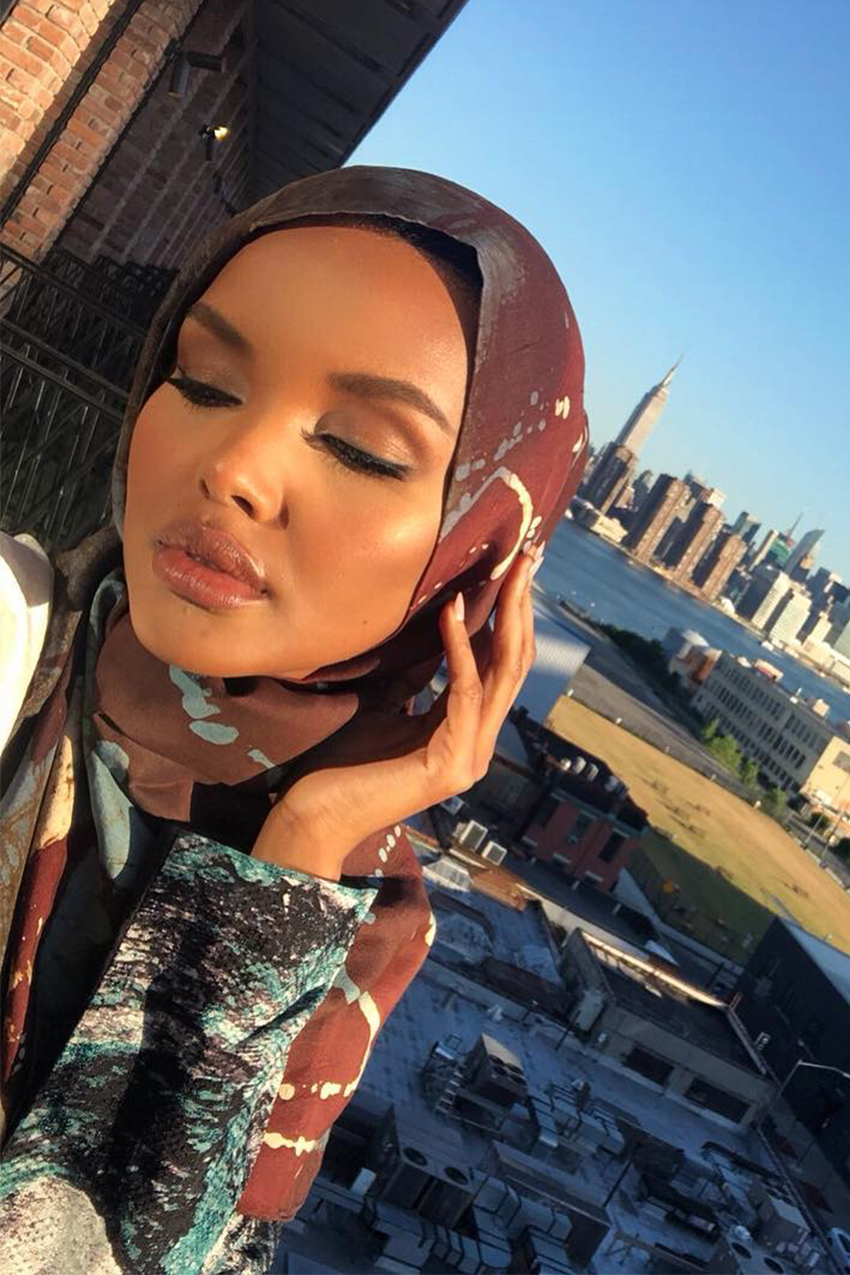
On a day off, what does your beauty routine look like? Do you have a skincare routine or a go-to makeup look?
My African mama always said, "If you can’t put it in your mouth, don’t put it on your face.” When I’m not traveling, I enjoy a good aloe vera, turmeric, and honey homemade face mask. As far as skincare, remembering to take off your makeup at night before bed and stay hydrated—lots of water. My go-to makeup look is a total beat face, and yes, I’m a sucker for false lashes. However, even though I say this, some of my favorite shoots have been with barely any makeup on.
Shop Halima's beauty essentials:
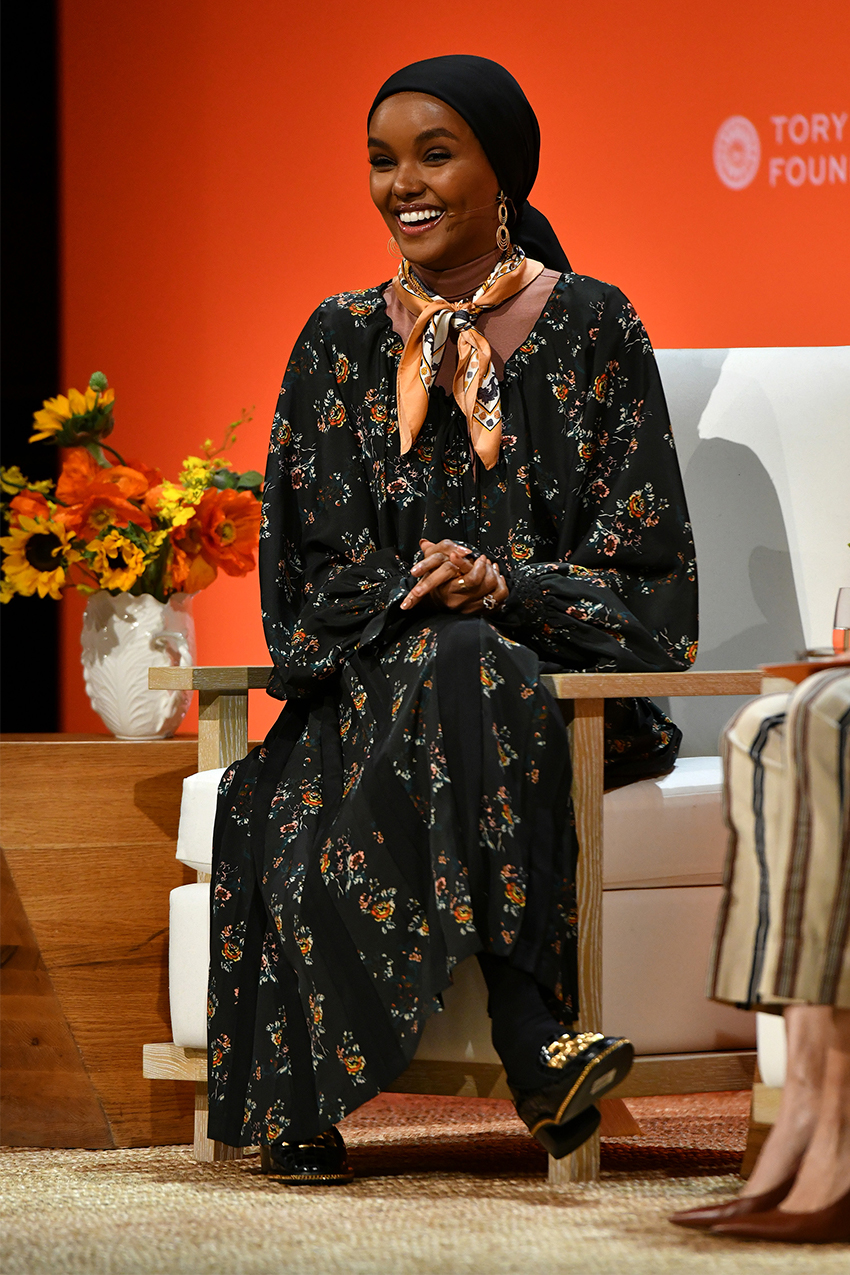
What do you hope your career says to women around the world?
My messaging has always been and will continue to be don’t change yourself; change the game.
Shop more of Halima's favorite brands:
Next: Meet the Hairstylists Redefining Natural Hair in Hollywood
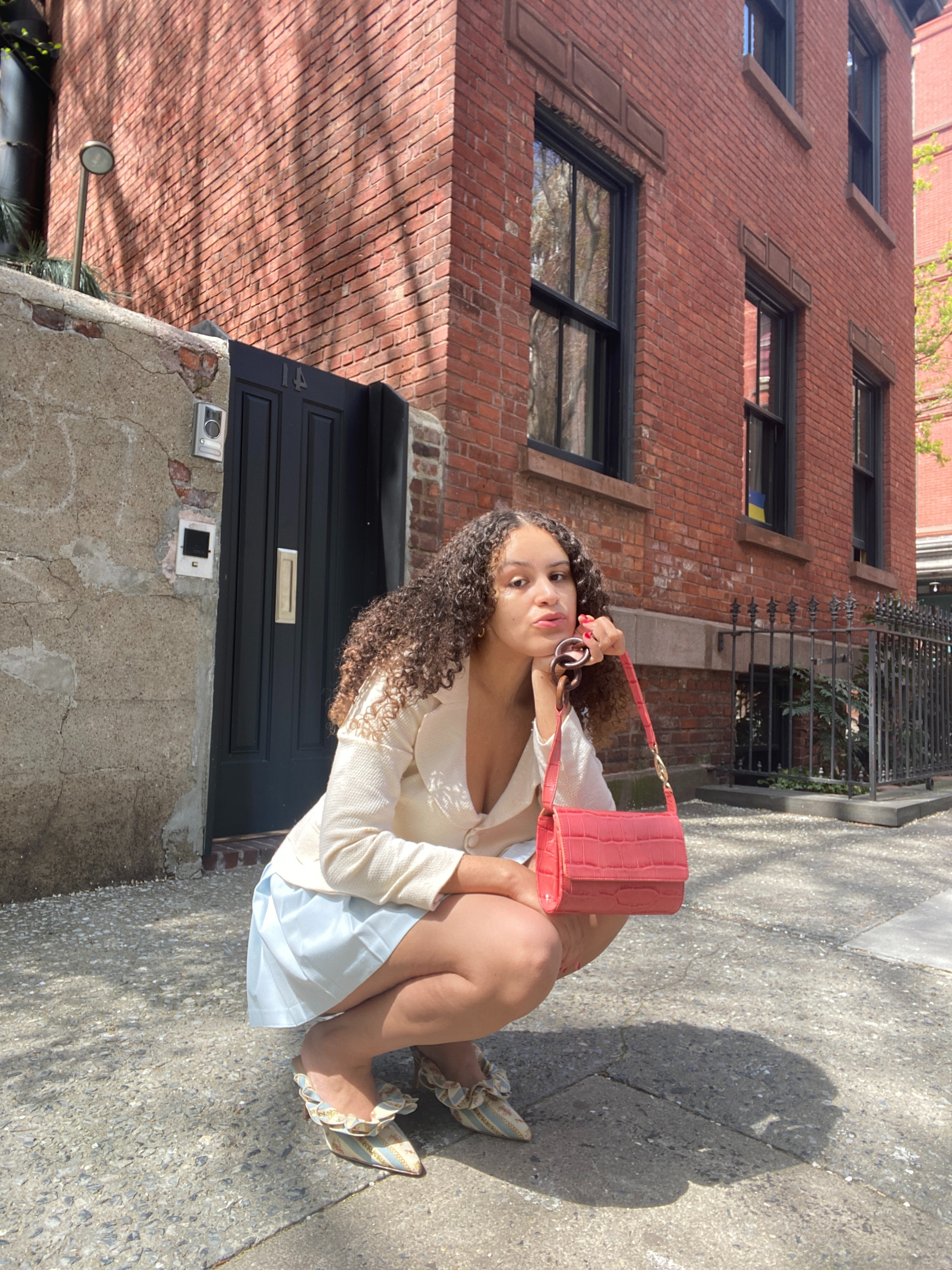
Jasmine Fox-Suliaman is a freelance writer and editor living in New York City. What began as a pastime (blogging on Tumblr) transformed into a lifelong passion for unveiling the connection between fashion and culture on the internet and in real life. Over the last decade, she's melded her extensive edit and social background to various on-staff positions at Who What Wear, MyDomaine, and Byrdie. More recently, she’s become a freelance contributor to other publications including Vogue, Editorialist, and The Cut. Off the clock, you can find her clutching her cell phone as she's constantly scrolling through TikTok and The RealReal, in search of the next cool thing.
